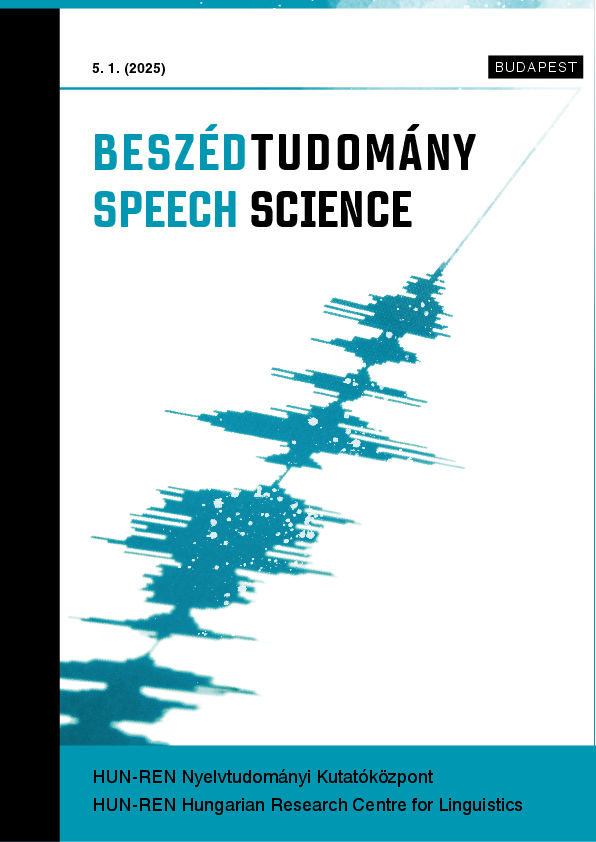Interaction of phonetic materials and simulated probe position on the mean square error metric of tongue ultrasound probe alignment – a methodological case study
Absztrakt
In tongue ultrasound imaging shifts in probe placement can cause problems in data interpretation if they go undetected. We analyse a promising metric – the mean squared error (MSE) of the mean ultrasound images – as a metric of probe stability. The metric’s performance is evaluated against systematically varied speech materials (fronted articulation versus backed articulation) and probe displacement. The speech materials consist of 54 different /C 1 VC 2 VC 3 V/ utterances in random order produced by one native speaker of Finnish and recorded with a Micro ultrasound setup using Articulate Assistant Advanced. In the fronted condition the vowel is /i/ and consonants are varied systematically among /n,s,t/. In the backed condition the vowel is /o/ and the consonants are varied among /h,k,N/. The probe displacement is both simulated and produced intentionally in the real world. For the latter the 54 utterances were repeated in a second block in a different random order. The differences between the results of the two displacement methods indicate that this dual approach merits further study. The results also indicate that varying speech materials may overshadow probe displacement which leads to a tentative recommendation of comparing like with like in speech materials when using MSE to detect probe movement.




